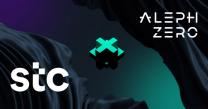 Polygon includes $23 billion sports betting company DraftKings as network validator
Polygon includes $23 billion sports betting company DraftKings as network validator Polygon includes $23 billion sports betting company DraftKings as network validator
Ethereum scaling solution Polygon includes the NASDAQ-listed DraftKings sports betting company as a network validator on the Polygon network. It’s the first time a major publicly-traded firm has taken an active role in blockchain governance.

Cover art/illustration via CryptoSlate. Image includes combined content which may include AI-generated content.
Valued at $23 billion, DraftKings, a digital sports entertainment and gaming company, today joins the Polygon ecosystem as a validator and node operator, marking this the first time a major publicly-traded firm has taken an active role in blockchain governance.
Polygon validators are responsible for verifying the authenticity and validity of transactions on the network and earn rewards in return in the blockchain’s Proof of Stake (PoS) mechanism. All validators stake Polygon’s native MATIC tokens as collateral for the right to run nodes, a fundamental part of the PoS blockchain’s infrastructure.
As part of the agreement to become one of the network’s validators, DraftKings has teamed up with the digital assets infrastructure provider Zero Hash to become one of Polygon’s 100 validators whose job includes producing blocks, validating consensus, and committing checkpoints to the Ethereum (ETH) mainnet.
Polygon validators have earned $770 million in rewards
According to the press release, more than 2.67 billion of Polygon’s MATIC tokens worth over $4 billion have so far been staked by Polygon validators who have earned close to $770 million in rewards to date.
“DraftKings will take its place among existing validators as an equal community member, solidifying our desire to achieve a decentralized, community-run consensus network,” said Sandeep Nailwal, co-founder of Polygon.
Over the past couple of years, Polygon has emerged as an important part of Web3 infrastructure by providing an Ethereum Virtual Machine (EVM) compatible sidechain and scaling solution bolstering high transaction speeds and low fees compared to the Ethereum base layer.
An important milestone for the blockchain industry
As per the press release, Polygon is home to some of the biggest projects in this space, from decentralized finance protocols such as lending platform Aave to luxury brands company Dolce & Gabbana and non-fungible token (NFT) marketplaces including OpenSea and Mark Cuban’s Lazy.com. More than 7,000 decentralized apps are currently building on Polygon, making it a popular destination for Web3 projects.
While large corporations have shown increasing interest in the nascent Web3 economy, most participation until now has been limited to investments and promotional campaigns. The decision by DraftKings to take an active role in the day-to-day operations of a major crypto network is an important adoption milestone for the blockchain industry.
DraftKings has announced several Web3 initiatives in the past year, including launching its mainstream accessible NFT marketplace featuring collections from Autograph, a strategic relationship with the Polygon blockchain, and an upcoming NFT-based game alongside the NFL Players Association.
“Futureproof aspects of our business in the Web3 era”
“Gaining exposure to staking technology supports DraftKings’ broader strategy of building out a robust, sustainable, and decentralized infrastructure to help futureproof aspects of our business in the Web3 era,” said Paul Liberman, co-founder and president of global product and technology at DraftKings.
Polygon’s suite of products offers developers access to major scaling and infrastructure solutions such as layer-2 solutions like zk rollups and optimistic rollups, sidechains, hybrid solutions, and more.
Looking ahead, Polygon is making major investments into zero-knowledge cryptography, a technology widely seen as the end game for blockchain scaling. The core development team made it a centerpiece of its strategic vision in the Zero-Knowledge Thesis published in August. As part of that mission, the team has committed $1 billion, a significant portion of the treasury, to zk-related efforts.























































